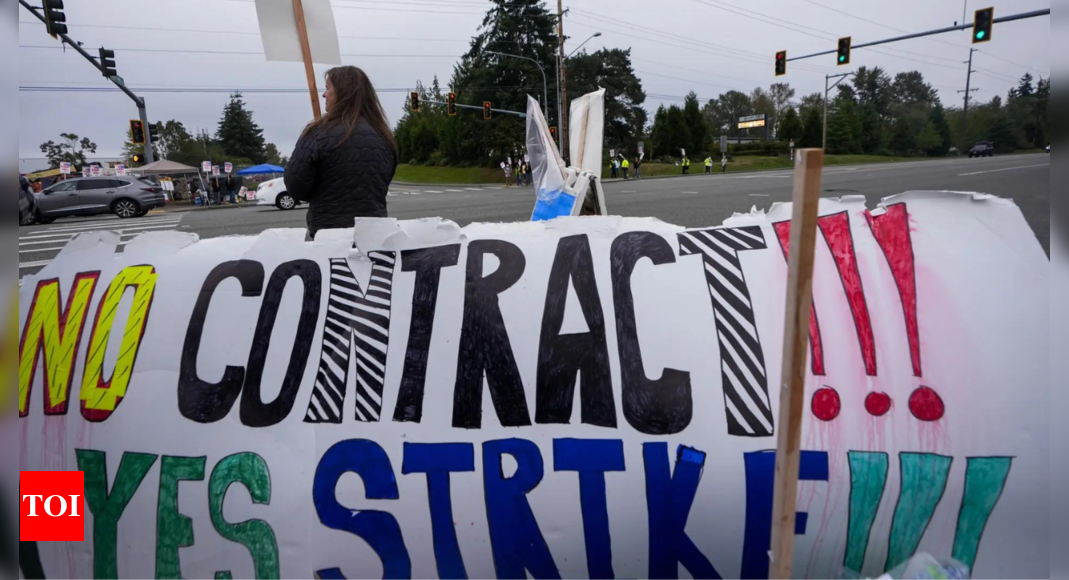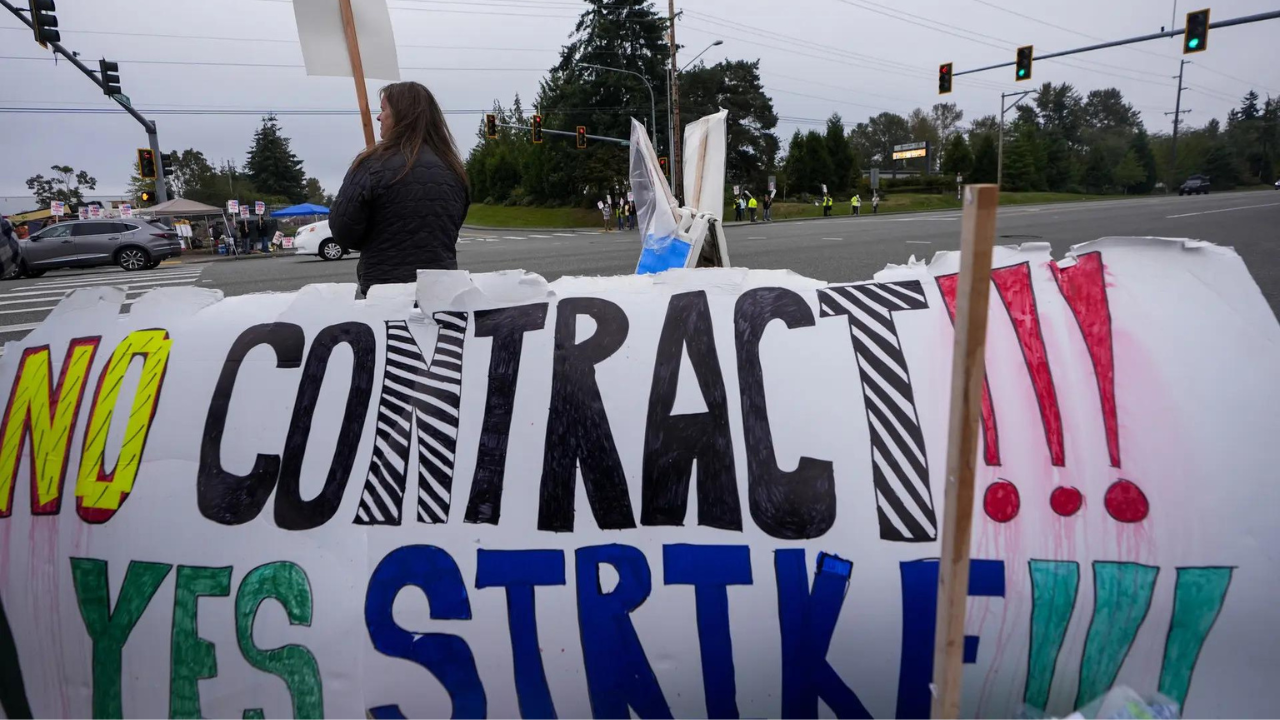Email :27
In response to the ongoing factory workers’ strike that began last week, Boeing has announced a series of measures “to preserve cash and safeguard future”.
Chief financial officer (CFO) Brian West outlined 10 immediate cost-cutting initiatives in a memo to employees, including a company-wide hiring freeze, a pause on pay increases for promoted managers and executives, and a halt to all non-essential travel.West said the moves were necessary because “our business is in a difficult period.”
West also mentioned the possibility of temporary layoffs. “We are also considering the difficult step of temporary furloughs for many employees, managers and executives in the coming weeks,” West said, adding, “this strike jeopardizes our recovery in a significant way.”
The company plans to reduce spending on suppliers and stop most supplier purchase orders related to the 737, 767, and 777 airplane models.
The strike, which began early Friday, involves approximately 33,000 workers represented by the International Association of Machinists and Aerospace Workers. The walkout occurred after workers rejected a proposed 25 per cent pay increase over four years, with the union initially seeking a pay hike of at least 40 per cent.
Striking workers are picketing at various locations in Washington state, Oregon, and California in the US.
The bonuses, which workers say range from $3,000 to $5,000 a year, have become a point of contention. Boeing argues that it is difficult to calculate bonuses fairly for 33,000 employees with different roles and instead proposes replacing the payouts with automatic contributions of $4,160 per year to each employee’s 401(k) retirement account. Workers are also frustrated that over the past 16 years, Boeing has ended its traditional pension plan and reduced health care benefits through contract extensions.
Boeing has faced significant financial challenges, losing more than $25 billion since the start of 2019 and burning through $4.3 billion in the second quarter of 2024 alone. The strike is expected to delay deliveries of new planes, which are a crucial source of cash for the company.
Despite Stephanie Pope, the head of Boeing’s commercial-airplanes division, urging workers to accept the contract offer last week, workers rejected the recommendation of their own leaders for the first time since 1995.
Additional cost-cutting measures outlined in the CFO’s memo include eliminating first- and business-class service for critical travel and halting spending on outside consultants.
Chief financial officer (CFO) Brian West outlined 10 immediate cost-cutting initiatives in a memo to employees, including a company-wide hiring freeze, a pause on pay increases for promoted managers and executives, and a halt to all non-essential travel.West said the moves were necessary because “our business is in a difficult period.”
West also mentioned the possibility of temporary layoffs. “We are also considering the difficult step of temporary furloughs for many employees, managers and executives in the coming weeks,” West said, adding, “this strike jeopardizes our recovery in a significant way.”
The company plans to reduce spending on suppliers and stop most supplier purchase orders related to the 737, 767, and 777 airplane models.
The strike, which began early Friday, involves approximately 33,000 workers represented by the International Association of Machinists and Aerospace Workers. The walkout occurred after workers rejected a proposed 25 per cent pay increase over four years, with the union initially seeking a pay hike of at least 40 per cent.
Striking workers are picketing at various locations in Washington state, Oregon, and California in the US.
The bonuses, which workers say range from $3,000 to $5,000 a year, have become a point of contention. Boeing argues that it is difficult to calculate bonuses fairly for 33,000 employees with different roles and instead proposes replacing the payouts with automatic contributions of $4,160 per year to each employee’s 401(k) retirement account. Workers are also frustrated that over the past 16 years, Boeing has ended its traditional pension plan and reduced health care benefits through contract extensions.
Boeing has faced significant financial challenges, losing more than $25 billion since the start of 2019 and burning through $4.3 billion in the second quarter of 2024 alone. The strike is expected to delay deliveries of new planes, which are a crucial source of cash for the company.
Despite Stephanie Pope, the head of Boeing’s commercial-airplanes division, urging workers to accept the contract offer last week, workers rejected the recommendation of their own leaders for the first time since 1995.
Additional cost-cutting measures outlined in the CFO’s memo include eliminating first- and business-class service for critical travel and halting spending on outside consultants.


